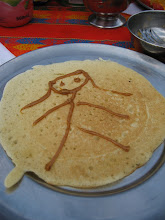Choice 3: Analytical Essay on The Tipping Point
Analysis of The Tipping Point
“Analysis is a form of detective work that begins not with the views you already have, but with something you are seeking to understand.”—Rossenwasser & Stephen
For the past couple of weeks, we have been reading, discussing, and having seminars on the concepts found in The Tipping Point. In exploring what we’ve noticed, found interesting, strange, or revealing, we may have left many possibilities still to be explored. For your second major writing assignment, you will be asked to come up with an idea about an area of interest that you want to explore and analyze further.
Begin by reading each of the suggested topics carefully. They are merely suggestions and will need to be narrowed down in order to be an effective essay. Then pick the question, or come up with your own topic, that most interests you and spend some time thinking and prewriting on it. We will spend time before the first draft looking at some different methods of exploring text including doing a 10-on-1 or using “The Method” as suggested by Writing Analytically. We will also talk about the difference between evidence and claims, and how to write a strong and tense thesis.
Your final draft should be 4-5 pages in length, typed, on one side of the page only, in a simple 12-point font. Include a heading that has your name, the class, and the date, either on the upper right hand corner or on a separate cover page. Please number your pages and staple or paper clip the final draft together BEFORE you come to class. Response groups meet for your benefit so please respect each others’ time and efforts by having copies of your completed first drafts on the day drafts are exchanged and being present and prepared on the day the group meets.
Due dates:
Draft 1 Wed., 2/1 Bring 5 copies
Response group Thurs., 2/2
Final draft Mon., 2/6
(Any papers revised after the final draft for a better grade must be turned in within a week of receiving the draft back.)
Suggested topics for further analysis:
1. Gladwell says that The Tipping Point is “the biography of an idea” (7) and that although his idea is simple, it is quite counterintuitive. On the other hand, there are others, people in our class included, who feel his ideas are common sense. Explore the ways that he claims that his idea is controversial and give a critique as to whether or not you agree with him. You may want to focus on some specific aspect of the claim such as the idea of context and human nature or the character as fragmented or the relation of crime to the environment.
2. Think about something recently that has tipped and using the lens of the tipping point theory, discuss whether or not it supports or denies the theory. For example, iPods, Lance Armstrong bracelets, etc. In what ways do the rule of the few or law of context, etc., apply or don’t apply? Please don’t use examples that he has used in the book or something that we have discussed more extensively in class like Ebay. You will have to do some background research for this so make sure to include proper citation of sources.
3. Discuss Gladwell’s answer to his critics that the tipping point theory’s method of making small adjustments are just a Band Aid solution to larger social issues. Do you agree with his answer and how might you further defend the theory to critics? On the flip side, you may want to side with the critics in that his solutions do not give long term solutions. In that case, give your reasons for why you feel the tipping point theory is flawed.
4. A topic of your choice. It’s preferable if you discuss it with me first.
Regardless of the topic chosen, evidence from the book should be cited. Direct quotations need to be integrated and cited correctly in the MLA format found in your handbook. A bibliography should be included if outside sources besides The Tipping Point is used. Papers should be written in an academic style. This means that the use of the second person should be avoided and that the first person should be used only in the case of personal example.


0 Comments:
Post a Comment
<< Home